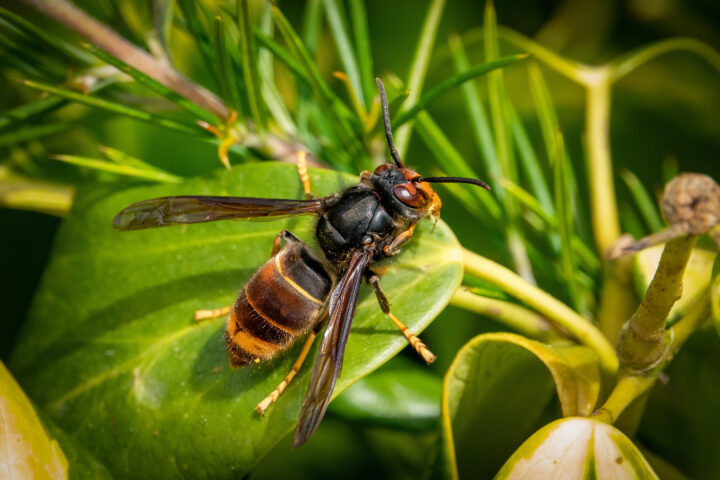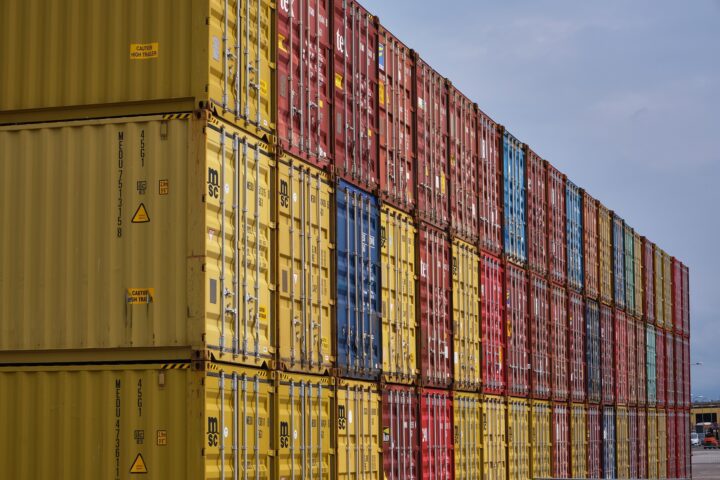
«Pesticides are a technology that support civilization»
Synthetic pesticides enabled the transition at the end of the 19th century from an era of periodic famines to an age of food security. For this reason, it is clear to the University of Göttingen’s Professor Andreas von Tiedemann that pesticides are a cornerstone of modern society.
Friday, January 15, 2021
Bordeaux mixture, a combination of copper sulphate and quicklime, was first used to fight downy mildew in France in 1885. This was the first use of a chemical pesticide and represented a turning point in agriculture. From now on, it was possible to actively combat harmful organisms and plant diseases.
Unprecedented increase in productivity
Improvements to plant varieties, mineral fertilizer, new cultivation and harvesting techniques and chemical pesticides served as the basis for the unprecedented increase in agricultural productivity in the 20th century. Since the 1950s, harvests of corn have quadrupled, harvests of rice have tripled and harvests of soy and wheat have doubled (per unit area). This has made it possible to feed a growing world population using almost the same amount of cultivation area. There were around 2.7 billion people on Earth at the beginning of the 1950s. There are now more than 7.5 billion. More than 60 percent of people now live in cities and work in the second or third sector. Productive agriculture, with its efficient use of resources, thus also enabled industrialization and the subsequent service society.
While pesticides do not increase yields directly, they play a central role in the maintenance of crops. Around two-thirds of the most important crops would be lost without pesticides. With pesticides, only around a third are lost. Pesticides reduce harvest fluctuations from year and make an essential contribution to food security. They also increase the efficiency of how resources such as water, nutrients, energy and land are used.
Pesticides secure a basic need
Our supply of fruit would also fluctuate sharply without pesticides. In addition, poorer populations would no longer be able to enjoy fruits and vegetables regularly. For example, potatoes would no longer be available in years with poor climate conditions. Wine, beer and coffee would be almost completely unavailable. Citrus fruits and bananas would be difficult to produce.
Access to food is a basic need and, according to the United Nations, a human right. Pesticides contribute to food security by ensuring yields. For von Tiedemann, one thing is clear: «Modern pesticides are a technology that secure a basic human need and thus support civilization, comparable to medicine and technologies for mobility, energy and communication.»
Pesticides are fundamental for public health
In contrast to the unscientific assertions made in the press and by politicians, pesticides – like vaccines, antibiotics and water treatment – are essential tools that have provided us with a better quality of life, food security and an unprecedented increase in life expectancy of 30 years. This is the conclusion that S. Eliza Dunn comes to in her article, which can be accessed here.
Related articles

New problem: soft bugs, native pests discover fruit and vegetables
Soft bugs are spreading at lightning speed in fields and greenhouses in southern Germany. These pests are destroying fruit and vegetables and pushing agriculture to its limits. Effective plant protection products must be found urgently to safeguard harvests.

Three times more Asian hornets – biocides needed
The Asian hornet has been a threat to the native honeybee for several years. The situation continues to worsen. As new figures show, there were almost 4,000 sightings last year – a threefold increase in the number of Asian hornets. The pest is attacking biodiversity. Politicians are also alarmed.

Is the industry exporting banned pesticides?
NGOs and the media repeatedly report on Swiss manufacturers of plant protection products who export pesticides that are banned in Switzerland. They claim that weak regulations in the importing countries are being deliberately exploited. However, this is not the case. Swiss manufacturers adhere to strict international standards when exporting plant protection products. Since approvals are also tailored to agronomic needs, the crops grown and the market, regulation from Switzerland makes no sense.

Insect decline: the facts behind the alarm
Insects are essential to our ecosystem: they pollinate plants, break down organic material and serve as a food source for many animals. So it is understandable that there is great concern when the media reports on ‘insect decline’ – and in some cases even on an impending ‘insect Armageddon’. But what do the scientific data really say? A new article by the Genetic Literacy Project shows that the situation is serious, but not nearly as one-sided and dramatic as it is often portrayed.

